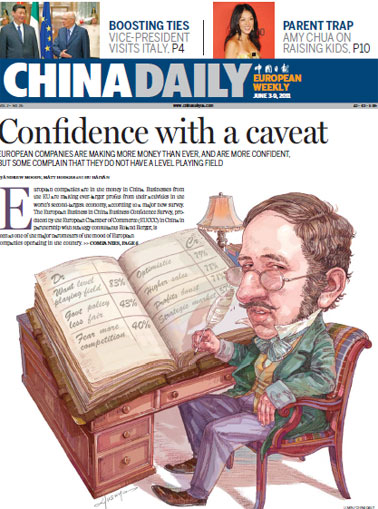Politics
Blueprint for fair demolition compensation
Updated: 2011-06-09 06:56
By Jin Zhu (China Daily)
Beijing - The central government is requiring that compensation for properties reclaimed for demolition equal at least the market price to protect property owners' rights and interests and reduce related conflicts.
The Ministry of Housing and Urban-Rural Development said on its website on Tuesday that work on property evaluation must be done by a qualified third-party rating institution, chosen after consultation with local residents.
The notice also required that the value of land where the property is located as well as indoor decorations and relocation settlement costs be taken into consideration for compensation.
According to the regulation, local governments are forbidden from using administrative powers to forcibly demolish residents' properties, and disputed cases shall be determined by courts.
Analysts said the latest notice was of great importance in setting fair compensation for home demolitions, which have provoked a number of high-profile incidents during forced relocations in recent years.
"The central government strived to establish fairness in a series of rules on property evaluation. It's an obvious improvement," Wang Xixin, a law professor in Peking University, told China Daily on Wednesday.
Wang is one of the five law professors who wrote an open letter to the National People's Congress, the top legislature, urging a revision of the country's demolition regulation at the end of 2009 - an event that captivated public attention.
Wang said there are still some loopholes on detailed procedures for property evaluation, which would weaken its credibility among the public.
"For instance, according to the notice, local governments will pay for the expenses on property evaluation. In this case, property owners will query the credibility of evaluation institutions when they can't get expected compensation," he said.
Also, property owners should have the right to choose institutions from across the country, instead of the current limited choices among local institutions, he added.
Li Chang'an, a public policy professor at the Beijing-based University of International Business and Economics, said whether local residents could make good use of their rights would also be a big problem in the future.
"There were always many households living on the same street. Therefore, it will be difficult to decide on an ideal institution for property evaluation as everyone has different choices," he said.
E-paper

Harbin-ger of change
Old industrial center looks to innovation to move up the value chain
Preview of the coming issue
Chemical attraction
The reel Mao
Specials

Vice-President visits Italy
The visit is expected to lend new impetus to Sino-Italian relations.

Birthday a new 'starting point'
China's national English language newspaper aims for a top-notch international all-media group.

Sky is the limit
Chinese tycoon conjures up green dreams in Europe with solar panels




